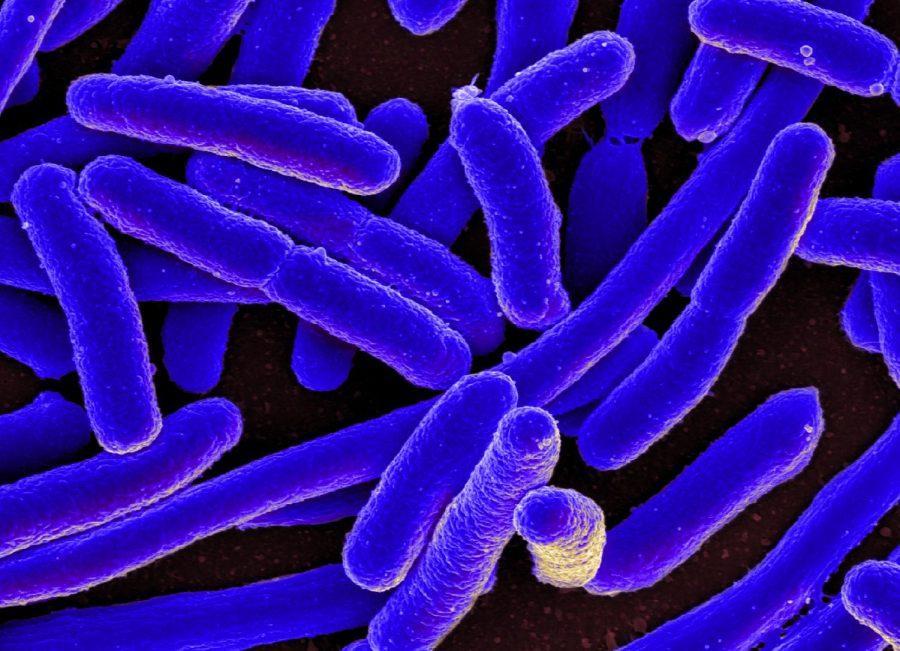NYUAD Students Win Gold for Portable E. coli Detection Device
Colorized scanning electron micrograph of E. Coli bacteria. NYUAD students’ have created an affordable device that detects E. Coli in twenty minutes.
January 24, 2018
NYU Abu Dhabi’s International Genetically Engineered Machine team developed a portable device called E. coLAMP, that can test for E. coli in food samples in 20 minutes and costs just $4 per test, according to an NYUAD press release. The students presented their project at last year’s Giant Jamboree synthetic biology competition in Boston, where they won a gold medal — the first for the university.
Two NYUAD seniors, Adrienne Chang and Nisa Semesta, led the team of 12 students with faculty supervision.
E. coli is a large group of bacteria commonly found in the lower intestine. While most strains are harmless, some can contaminate foods like vegetables, undercooked meat and unpasteurized milk and cause life-threatening diseases. The latest national E. coli outbreak between Nov. 15 and Dec. 8 resulted from a dangerous strain that left 17 people ill and caused one fatality.
Before that, E.coli made headlines in 2016 when two major outbreaks were linked to the food at Chipotle Mexican Grill.
The strain of E. coli that caused these recent outbreaks is the one that NYUAD’s iGEM team targeted with their project.
According to the press release, the team developed E. coLAMP with the goal of providing a simple and cost-effective way to check whether a food sample is contaminated with E. coli. Designed by the team’s engineers using 3-D printers, the device has a robust case that houses electrical components and a silicone chip. The case amplifies a genetic marker of E. coli using a technique called loop-mediated isothermal amplification, or LAMP. The biological reaction that takes place within the casing visually informs the end user if a toxin is present.
The procedure involves a food sample being swabbed and added to a solution, which is then transferred to the silicone chip in the case. The chip is then placed on the device’s heating base, where the reaction occurs.
The idea for this project came after conducting extensive research and intensive discussion, after which the team members decided on a device that can detect pathogenic, toxin producing E. coli in street foods. During the development process, they integrated feedback from potential users and followed a design-build-test cycle to revise the design according to users’ needs.
Although this device was originally conceived for consumer use, the team noticed that the device’s reaction time of 20 minutes and cost of $4 per test is an attractive alternative for enterprises looking to maximize food safety.
“We hope that by providing a device that is more convenient and produces results faster than current detection methods, entities responsible for food safety regulation such as governmental agencies and even food vendors themselves will be motivated to take stronger action towards maintaining food safety,” the project’s description states.
The NYUAD team was the only participating team from the United Arab Emirates, according to the release. Team members hope to share their experience with other institutions in the Persian Gulf countries and encourage them to launch their own iGEM teams in the future.
“We are looking forward to empowering our community here in Abu Dhabi and our home countries by continuing to develop this device,” Semesta said in an interview with TradeArabia News.
Email Kenneth Jung at [email protected].



























































































































































